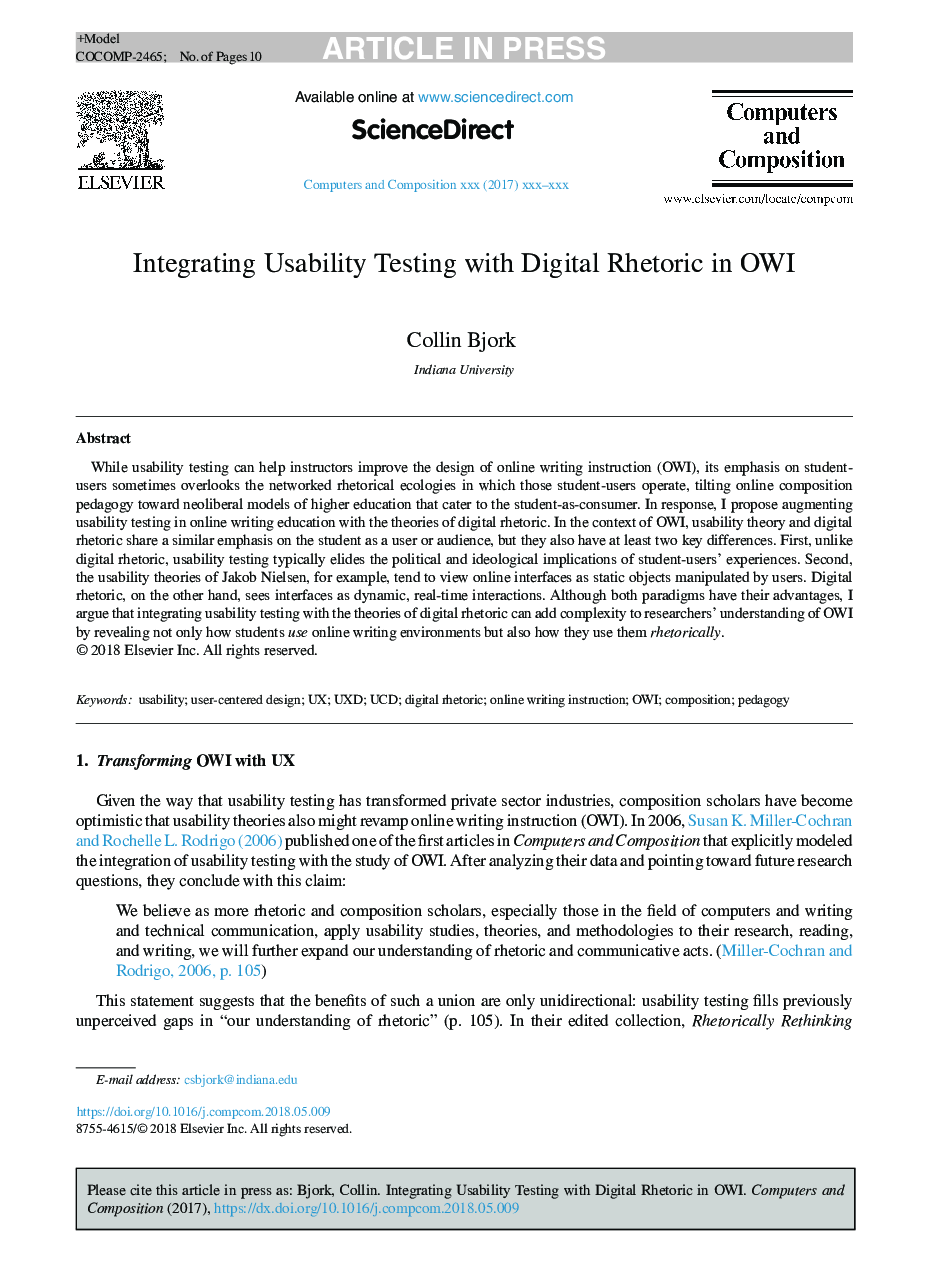| Article ID | Journal | Published Year | Pages | File Type |
|---|---|---|---|---|
| 10225625 | Computers and Composition | 2018 | 10 Pages |
Abstract
While usability testing can help instructors improve the design of online writing instruction (OWI), its emphasis on student-users sometimes overlooks the networked rhetorical ecologies in which those student-users operate, tilting online composition pedagogy toward neoliberal models of higher education that cater to the student-as-consumer. In response, I propose augmenting usability testing in online writing education with the theories of digital rhetoric. In the context of OWI, usability theory and digital rhetoric share a similar emphasis on the student as a user or audience, but they also have at least two key differences. First, unlike digital rhetoric, usability testing typically elides the political and ideological implications of student-users' experiences. Second, the usability theories of Jakob Nielsen, for example, tend to view online interfaces as static objects manipulated by users. Digital rhetoric, on the other hand, sees interfaces as dynamic, real-time interactions. Although both paradigms have their advantages, I argue that integrating usability testing with the theories of digital rhetoric can add complexity to researchers' understanding of OWI by revealing not only how students use online writing environments but also how they use them rhetorically.
Keywords
Related Topics
Social Sciences and Humanities
Arts and Humanities
Language and Linguistics
Authors
Collin Bjork,
